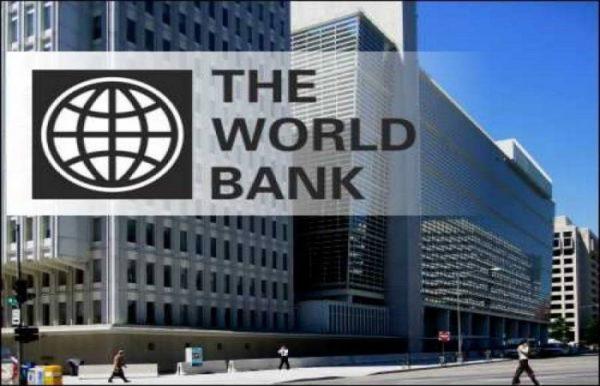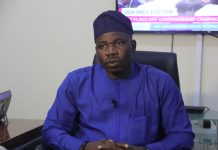…May take Nigeria 10-15 years to transform its economy
… Nigeria’s world poverty capital status is unacceptable
At the ongoing Nigeria Economic Summit, Indermit Gill, Senior Vice President of the World Bank Group, laid out essential reforms that Nigeria must implement by 2025 to ensure a sustainable economic recovery. Gill highlighted three pivotal areas of focus that could significantly impact the country’s economic trajectory.
First on his agenda is the urgent need to prioritize non-oil imports, which necessitates a competitive exchange rate. He noted that Nigeria currently enjoys one of its most competitive real exchange rates in two decades, presenting a golden opportunity for the private sector.
Gill emphasized that the government must alleviate the burden of inflation on vulnerable households. He commended the government’s efforts in implementing a large-scale, targeted cash transfer program that has already benefited between four and five million households. “This program should quickly extend to 10 million households, or more if necessary,” he urged. He stressed the importance of establishing a cost-effective safety net for Nigeria’s most vulnerable citizens, suggesting that savings from ending fuel subsidies and correcting exchange rate distortions could fund these initiatives.
To protect the economically disadvantaged and maintain competitiveness, Gill advised the Central Bank to prioritize controlling inflation. He cautioned against the allure of short-term capital inflows that could artificially inflate the Naira’s value, potentially stifling non-oil growth. Instead, he recommended focusing on rebuilding foreign exchange reserves as a buffer against oil price fluctuations.
The World Bank official also underlined the importance of creating a business-friendly environment to accommodate the anticipated influx of over 12 million young Nigerians entering the workforce over the next decade. He asserted that private sector growth, supported by large-scale domestic and foreign investment in the non-oil sector, is essential for job creation. “Attracting such investment means boosting the national power grid, improving transportation, enhancing security, and refining regulations for private enterprise,” Gill explained.
Highlighting the consequences of inaction, he warned that failure to implement these reforms would not only set back progress across the continent but also jeopardize the future of an entire generation. He called on Nigeria’s elites, gathered at the summit, to unite in support of these reforms to foster a prosperous and stable future for subsequent generations.
In discussing the oil sector, Gill underscored the urgent need for Nigeria to revisit and sustain reforms previously implemented between 2003 and 2007. He called for the adoption of oil price-based fiscal rules, complete transparency in the accounting and allocation of oil revenues, and the development of a public investment program aimed at diversifying the economy while keeping public debt at a sustainable level. “Nigeria must continue to let markets determine exchange rates and learn from its past policy mistakes,” he remarked.
Gill pointed to Norway as a benchmark for effective oil wealth management, highlighting how the Scandinavian country has consistently implemented reforms that have insulated its non-oil sectors from oil price volatility and built significant foreign exchange reserves. “The basic principles that guided Norway’s reform and Nigeria’s reform are similar, but the difference lies in Norway’s commitment to sustaining those reforms,” he noted.
He stressed that while it may take a decade to see the fruits of these reforms, consistency is key. “Nigeria will survive. It’s a great nation. But great nations also thrive, and I hope that Nigeria will thrive, and soon,” he said, emphasizing the necessity of a sustained commitment to reform over the next 10 to 15 years to transform the economy into a driving force for growth in sub-Saharan Africa.
Gill urged Nigeria to learn from its historical economic challenges, particularly the fiscal missteps during the oil boom of the 1970s that led to amplified oil price volatility and increased vulnerability for ordinary Nigerians. He criticized the government’s previous actions of tightening foreign exchange controls and imposing import licensing, which created a parallel exchange rate market, resulting in inflated costs for the average citizen.
Ultimately, Gill lamented that Nigeria’s oil wealth, which should benefit all citizens, has historically favored only the elite. “Ordinary Nigerians are suffering the consequences of past policies, and it is essential to ensure that oil wealth serves the welfare of all,” he concluded.
In light of President Bola Ahmed Tinubu’s recent signature reforms, Gill expressed hope that they represent a vital step toward breaking free from the past and building a more equitable future for all Nigerians. He pointed out that implicit subsidies from the exchange rate and explicit subsidies on Premium Motor Spirit (PMS) cost the government N10 trillion annually by 2022, equivalent to about $15 billion at free market rates. However, he acknowledged that the removal of these subsidies has led to a doubling of PMS prices, imposing significant hardships across the socioeconomic spectrum.










